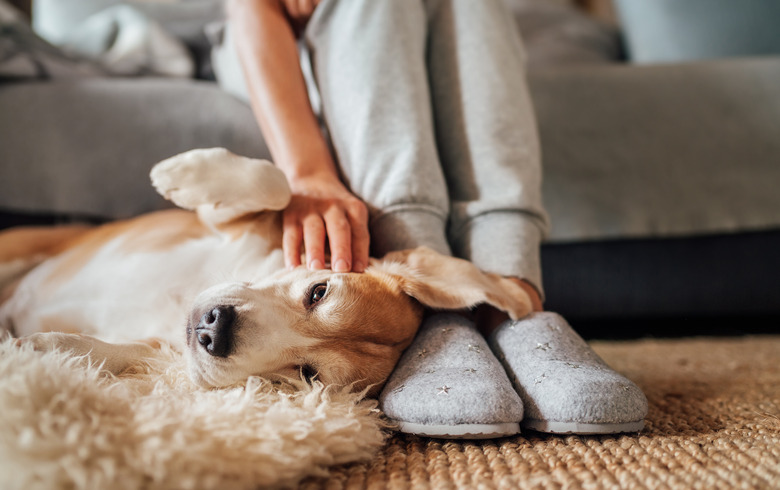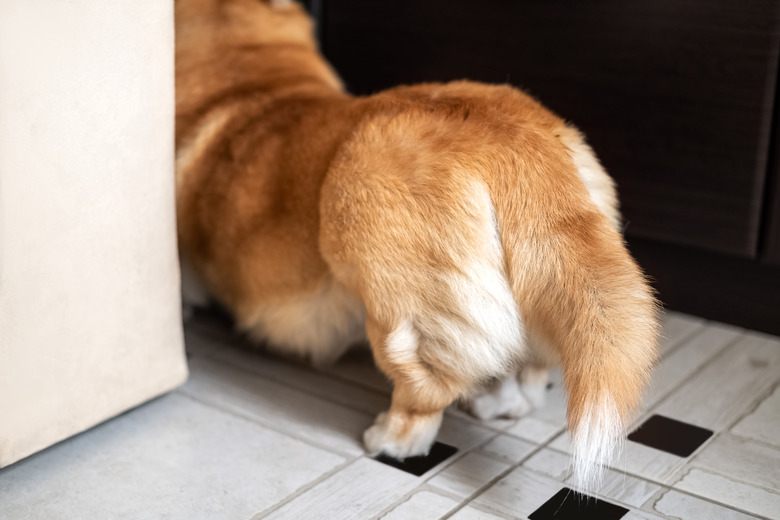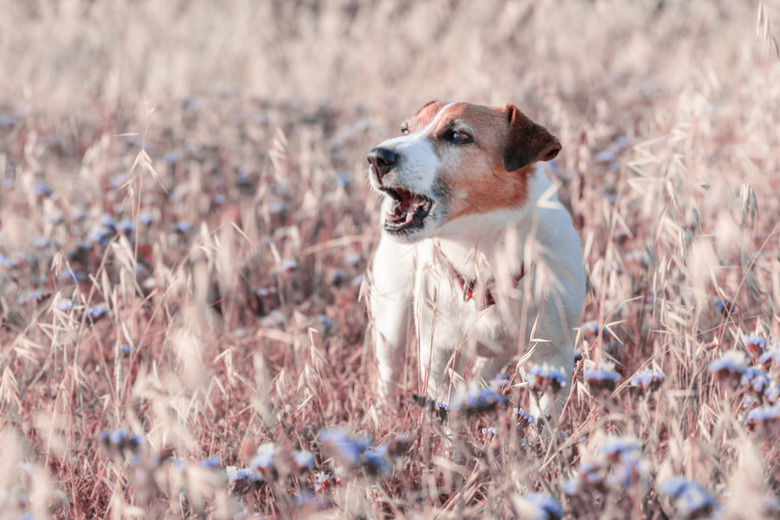What To Do If Your Dog Has Smelly Anal Glands
While dogs bring great joy to life, caring for them sometimes involves tasks that can range from unpleasant to embarrassing or even downright gross. Case in point: anal gland maintenance. When a dog has smelly anal glands or anal gland problems, it's not just offensive to those subjected to the awful stench; it can also be uncomfortable for the dog. Additionally, foul-smelling anal glands may be a sign of a more serious problem, so it's important to see a veterinarian to find out what is causing the issue before determining the best possible treatment option.
What are a dog's anal glands?
What are a dog's anal glands?
Anal glands, otherwise known as anal sacs, are glands located in a dog's anus for scent distribution. These glands are filled with fluid that releases from the dog's anus when they have a bowel movement and emit an odor that helps dogs mark their territory and communicate necessary information with other curious dogs upon meeting. Additionally, the anal gland secretions help dogs pass their poop more easily.
Why does my dog's butt smell like fish?
Why does my dog's butt smell like fish?
An unpleasant or fishy smell coming from a dog's rear end may indicate a problem. While a healthy dog may experience doggy gas or occasional bowel movements that offend one's sense of smell, dogs that exhibit smelly anal secretions on a regular basis may be dealing with anal gland impaction, anal gland sacculitis, an anal gland abscess, or even an anal gland tumor.
While some of these conditions are easily treated, others, such as a malignant anal gland tumor, could be potentially life threatening, which is why the first course of action should always be to have the dog examined by a veterinarian.
Signs of impacted anal glands in dogs
Signs of impacted anal glands in dogs
Anal gland impaction happens when one or both of the anal glands are not emptying properly and become obstructed. This causes the fluid to thicken and the gland to swell.
There are several signs that can indicate impacted anal glands.
- Odor. The most common sign of impacted anal glands is the odor. A fishlike smell is one possible indicator of impacted anal glands.
- Changes to poop. Other signs may include a change in stool, such as smelly diarrhea.
- Licking. Excessive licking of the anal area.
- Difficulty pooping. Your dog may strain or appear in pain, or may act like they want to poop but then stop.
- Scooting. Scooting means dragging their butt across the ground. Licking and scooting are often an attempt on the dog's part to ease the irritation that comes with impacted anal glands and are a sign that those glands are in need of attention.
When a dog's anal glands become impacted, they can not only make it uncomfortable to defecate but they may also rupture or abscess, which causes pain and requires medical intervention.
How is a dog's anal sac disease treated?
How is a dog's anal sac disease treated?
The first step is to determine whether the problem is impacted anal glands or if there are other issues at play.
- Anal gland sacculitis. A veterinarian can assess the dog's health to make sure there is not a more serious medical condition, such as anal gland sacculitis, where the glands become inflamed and bacteria invades, causing an infection.
- Anal gland abscess. Likewise, an anal gland abscess is a more serious condition where the glands become so obstructed and infected that the pus and anal sac fluid build up and may rupture through the skin. This is a painful condition that may require the dog to be sedated or put under anesthesia to clean out the whole area. In these cases, anti-inflammatory and/or antibiotic medications will likely be needed.
- Anal gland tumor. If the dog is having trouble defecating, this could also be caused by an anal gland tumor. These are usually malignant and are generally treated with surgery and chemotherapy.
- Impacted anal glands. If a veterinary exam indicates that the problem is impacted anal glands and there are no other issues, the dog's anal glands will likely need to be expressed to get things functioning normally again. It is recommended that pet parents enlist the help of a professional, like a veterinarian or veterinary technician to express these glands because improper expression can injure the dog.
How to prevent anal sac disease in dogs
How to prevent anal sac disease in dogs
For anal gland health and maintenance, dogs should have plenty of water available. Keeping dogs at a healthy weight can also help to prevent anal sac disease, as obesity may be one factor that can make a dog more likely to suffer from anal sac issues.
Skin conditions like allergies and mite infections can cause anal gland problems, so it's important to treat underlying conditions to prevent further issues. Expressing anal glands when they don't need to be emptied can also set the stage for anal gland disease, so make sure your groomer is not routinely expressing anal glands. They should only be emptied by a veterinary professional when it's deemed medically necessary.
Diet also plays a role in preventing anal gland blockages, and getting enough fiber in the diet may help minimize or prevent issues. A veterinarian can make diet recommendations to help prevent anal sac issues. These may include things like fish oil supplements; canned, pure pumpkin; fresh, cooked pumpkin; and feeding a high quality diet with adequate fiber.
The bottom line
The bottom line
Smelly anal glands may indicate that there's a blockage, an infection, or even a tumor. While impacted anal glands can often be addressed by expressing them to clean them out and addressing any underlying conditions, more serious issues may require antibiotics, anti-inflammatory medications, or even surgery. If a dog has ongoing issues with foul-smelling poop, excessive butt licking, difficulty defecating, scooting, or a change in stool, a veterinarian should be consulted to diagnose the issue and recommend the appropriate treatment.


